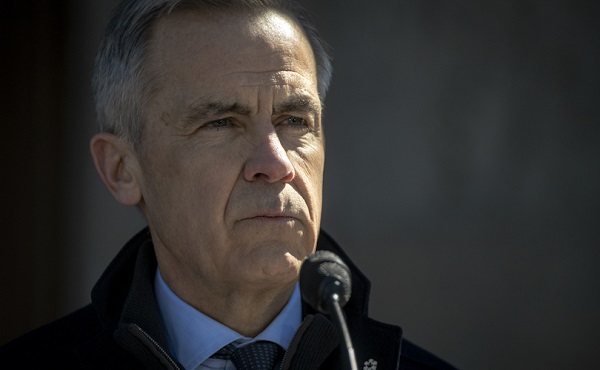Brownstone Institute
Witnessing the Media’s Covid Coverage from the Inside

From the Brownstone Institute
BY
If right-leaning outlets wanted my words and left-leaning ones did not, my Occam’s razor landed on ideology as the explanatory factor. So-called progressive media had a story to uphold and rejected any plot twist that threatened the cohesion of its narrative.
In the movie An Education, the main character gets sidetracked from her studies by a smooth-talking art dealer who turns out to be a criminal—and married. Our protagonist learns more from that experience than from all the medieval literature books she cracked open before. I have similar feelings about my own education. While I’ve been earning my living as a writer for the past 29 years, it’s only during the Covid era that I learned what the writing business is really about.
I wear two hats in my professional life: medical writer, creating materials for doctors and the healthcare industry, and feature-article journalist for consumer magazines. It wasn’t until Covid that I began pitching essays and op-eds for publication.
I started with a piece called “A Tale of Two Pandemic Cities,” which grew out of my short trip to Amsterdam and Stockholm in the summer of 2020, when the European Union opened its doors to “well-behaved” countries like Canada. The Covid hysteria in my country had made me desperate to visit more balanced parts of the world, and my trip didn’t disappoint. The article found a home at a Canadian outlet called Healthy Debate, though the editor asked me to temper my enthusiasm for the Swedish strategy with an acknowledgement of its risks. Happy to find a legit publisher for my first Covid piece, I capitulated, sort of. (You can judge for yourself.)
Thus began a feverish outpouring of essays, each one motivated by the same bewildered questions: What the hell is happening to the world, and why? Has everyone else gone mad, or is it me? I had written a few controversial articles throughout my career, but never before had I held a “dissenting view” about an issue that affected the whole world—or felt such an urgent need to express it.
The Great Divide
I quickly learned that certain news outlets were less open to my pieces than others. Salon, fuggedaboutit. Spiked Online, bull’s eye on the first try. Washington Post, not a chance. Wall Street Journal, a couple of “close, but no cigar” efforts and then finally a yes. It boiled down to this: the further left a publication leaned, the less likely it would publish my pieces (or even respond to my inquiries). I’m sure a statistician could write an equation to capture the trend.
So why the radio silence from left-wing publications? I doubted I was tripping their “Covid disinformation” radars, as my pieces had less to do with scientific facts than with social philosophy: the balance between safety and freedom, the perils of top-down collectivism, the abuse of the precautionary principle, that sort of thing. If right-leaning outlets wanted my words and left-leaning ones did not, my Occam’s razor landed on ideology as the explanatory factor. So-called progressive media had a story to uphold and rejected any plot twist that threatened the cohesion of its narrative. (Not that right-wing media behaved much differently. Such is the age of advocacy journalism.)
Most nerve-wracking of all were the publishers who accepted my articles but, like that first Healthy Debate editor, insisted I make substantive changes. Should I concede or push back? I did a bit of both. The most important thing, I told myself, was to make people reflect on the topsy-turvy policies that had freeze-framed the world. If I had to soften a few sentences to get the word out, so be it. I have the utmost respect for writers who refuse to yield on such matters, but 29 years of paying the bills from my writing have tipped my internal compass toward pragmatism.
I did stand my ground with an article on the mask wars. My thesis was that the endless and pointless disputes on social media—masks work, no they don’t, yes they do, no they don’t—had less to do with science than with worldview: irrespective of the data, social collectivists would find a way to defend masks, while my freedom-first compatriots would never countenance a perma-masked world.
One editor agreed to publish the piece if I mentioned that some studies favor masking, but I argued that quoting studies would undercut my central argument: that the forces powering the mask wars have little to do with how well they block viruses. He wouldn’t budge, so we parted ways and I found a more congenial home for the piece at the Ottawa Citizen.
Hidden Treasures
The process of pitching counternarrative essays, while arduous at times, led me to a smorgasbord of lesser-known, high-quality publications I never would have discovered otherwise. Topping the list was the glorious UnHerd, a UK news and opinion website with such daring thinkers as Mary Harrington and Kathleen Stock on its roster of contributors. The US-based Tablet magazine offered consistently fresh takes on Covid and never took the easy road in its analyses. In its pages I found one of the most powerful Covid essays I have ever read. The author, Ann Bauer (no relation), teased out the common threads between the “settled science” about the virus and the litany of quack theories about autism, which fed into her son’s death by suicide.
Then there was Quillette, whose contempt for the sacred cows of wokeism gave me a special thrill. True confession: I blew my chances with Quillette and it’s my own damned fault. Like many working writers, I sometimes pitch a piece to more than one outlet at the same time, a practice known as simultaneous submissions. This goes against protocol—we’re supposed to wait until an editor declines our pitch before approaching the next one—but the reality is that many editors never respond. With the deck thus stacked against us, we writers sometimes push the envelope, figuring the odds of getting multiple acceptances (and thus pissing off editors) are low enough to take the risk.
On this particular occasion, I submitted an article called “Lessons from my Half-Vaxxed Daughter” to three publications. Medpage Today responded right away, and I accepted their offer to publish it. (This was while Marty Makary, the dissident-lite physician who called out people’s distorted perception of Covid risk in mainstream media, led the editorial team.) A few hours later, Quillette’s Canadian editor sent me a slightly reworked version of my piece and told me when he planned to run it. I had no choice but to proffer a red-faced apology and admit I had already placed the article elsewhere. He never responded to my email or to a follow-up mea culpa a few weeks later—and has ignored everything I’ve submitted since then. I guess I’ll have to wait until he retires.
Podcast Polarities
Earlier this year, Brownstone Institute published my book Blindsight Is 2020, which critiques the pandemic response through the lens of 46 dissident thinkers. By all standards a moderate book, it stays clear of any “conspiratorial” speculations about the origins of the pandemic or the political response to it. Instead, it focuses on the philosophical and ethical issues that kept me awake at night during the peak Covid years—the same themes I explore in my essays, but in greater depth. I wrote the book not just for “my team,” but for those who vehemently opposed my views—perhaps especially for them. I didn’t expect to change their minds as much as to help them understand why some of us objected so strenuously to the policies they cheered on.
After the book came out, a few podcasters invited me to their shows. I appeared on a Libertarian Institute podcast in which the host puffed on his hand-rolled cigarettes while we talked. I spoke to an amiable ex-con podcaster who made it his mission to share Ayn Rand’s ideas with the world. I bonded with Rupa Subramanya—a brilliant Canadian conservative journalist and podcaster featured in my book—over the Freedom Convoy we had both supported.
All told I’ve appeared on 22 podcasts to date, each of them hosted by a right-leaning or libertarian host. Crickets from the left. Not one to accept defeat, I’ve begun reaching out to left-leaning podcasters on my own. Perhaps one day I’ll hear back from them.
Covid media, like so much else in modern life, has become hopelessly fractured: the tall, left-facing trees dominate the landscape, telling the story of a deadly virus that we “did the best we could” to manage. Below the tree canopy lies the tangle of weeds that sway in the wind, whispering songs of freedom and warning against the totalitarian impulses that all too readily emerge during crises. While I’ll continue to throw my essays at those unyielding trees, the messy underbrush is where I’ve found my journalistic home.
Brownstone Institute
Net Zero: The Mystery of the Falling Fertility

From the Brownstone Institute
By
If you want to argue that a mysterious factor X is responsible for the drop in fertility, you will have to explain (1) why the factor affected only the vaccinated, and (2) why it started affecting them at about the time of vaccination.
In January 2022, the number of children born in the Czech Republic suddenly decreased by about 10%. By the end of 2022, it had become clear that this was a signal: All the monthly numbers of newborns were mysteriously low.
In April 2023, I wrote a piece for a Czech investigative platform InFakta and suggested that this unexpected phenomenon might be connected to the aggressive vaccination campaign that had started approximately 9 months before the drop in natality. Denik N – a Czech equivalent of the New York Times – immediately came forward with a “devastating takedown” of my article, labeled me a liar and claimed that the pattern can be explained by demographics: There were fewer women in the population and they were getting older.
To compare fertility across countries (and time), the so-called Total Fertility Rate (TFR) is used. Roughly speaking, it is the average number of children that are born to a woman over her lifetime. TFR is independent of the number of women and of their age structure. Figure 1 below shows the evolution of TFR in several European countries between 2001 and 2023. I selected countries that experienced a similar drop in TFR in 2022 as the Czech Republic.

So, by the end of 2023, the following two points were clear:
- The drop in natality in the Czech Republic in 2022 could not be explained by demographic factors. Total fertility rate – which is independent of the number of women and their age structure – dropped sharply in 2022 and has been decreasing ever since. The data for 2024 show that the Czech TFR has decreased further to 1.37.
- Many other European countries experienced the same dramatic and unexpected decrease in fertility that started at the beginning of 2022. I have selected some of them for Figure 1 but there are more: The Netherlands, Norway, Slovakia, Slovenia, and Sweden. On the other hand, there are some countries that do not show a sudden drop in TFR, but rather a steady decline over a longer period (e.g. Belgium, France, UK, Greece, or Italy). Notable exceptions are Bulgaria, Spain, and Portugal where fertility has increased (albeit from very low numbers). The Human Fertility Project database has all the numbers.
This data pattern is so amazing and unexpected that even the mainstream media in Europe cannot avoid the problem completely. From time to time, talking heads with many academic titles appear and push one of the politically correct narratives: It’s Putin! (Spoiler alert: The war started in February 2022; however, children not born in 2022 were not conceived in 2021). It’s the inflation caused by Putin! (Sorry, that was even later). It’s the demographics! (Nope, see above, TFR is independent of the demographics).
Thus, the “v” word keeps creeping back into people’s minds and the Web’s Wild West is ripe with speculation. We decided not to speculate but to wrestle some more data from the Czech government. For many months, we were trying to acquire the number of newborns in each month, broken down by age and vaccination status of the mother. The post-socialist health-care system of our country is a double-edged sword: On one hand, the state collects much more data about citizens than an American would believe. On the other hand, we have an equivalent of the FOIA, and we are not afraid to use it. After many months of fruitless correspondence with the authorities, we turned to Jitka Chalankova – a Czech Ron Johnson in skirts – who finally managed to obtain an invaluable data sheet.
To my knowledge, the datasheet (now publicly available with an English translation here) is the only officially released dataset containing a breakdown of newborns by the Covid-19 vaccination status of the mother. We requested much more detailed data, but this is all we got. The data contains the number of births per month between January 2021 and December 2023 given by women (aged 18-39) who were vaccinated, i.e., had received at least one Covid vaccine dose by the date of delivery, and by women who were unvaccinated, i.e., had not received any dose of any Covid vaccine by the date of delivery.
Furthermore, the numbers of births per month by women vaccinated by one or more doses during pregnancy were provided. This enabled us to estimate the number of women who were vaccinated before conception. Then, we used open data on the Czech population structure by age, and open data on Covid vaccination by day, sex, and age.
Combining these three datasets, we were able to estimate the rates of successful conceptions (i.e., conceptions that led to births nine months later) by preconception vaccination status of the mother. Those interested in the technical details of the procedure may read Methods in the newly released paper. It is worth mentioning that the paper had been rejected without review in six high-ranking scientific journals. In Figure 2, we reprint the main finding of our analysis.

Figure 2 reveals several interesting patterns that I list here in order of importance:
- Vaccinated women conceived about a third fewer children than would be expected from their share of the population. Unvaccinated women conceived at about the same rate as all women before the pandemic. Thus, a strong association between Covid vaccination status and successful conceptions has been established.
- In the second half of 2021, there was a peak in the rate of conceptions of the unvaccinated (and a corresponding trough in the vaccinated). This points to rather intelligent behavior of Czech women, who – contrary to the official advice – probably avoided vaccination if they wanted to get pregnant. This concentrated the pregnancies in the unvaccinated group and produced the peak.
- In the first half of 2021, there was significant uncertainty in the estimates of the conception rates. The lower estimate of the conception rate in the vaccinated was produced by assuming that all women vaccinated (by at least one dose) during pregnancy were unvaccinated before conception. This was almost certainly true in the first half of 2021 because the vaccines were not available prior to 2021. The upper estimate was produced by assuming that all women vaccinated (by at least one dose) during pregnancy also received at least one dose before conception. This was probably closer to the truth in the second part of 2021. Thus, we think that the true conception rates for the vaccinated start close to the lower bound in early 2021 and end close to the upper bound in early 2022. Once again, we would like to be much more precise, but we have to work with what we have got.
Now that the association between Covid-19 vaccination and lower rates of conception has been established, the one important question looms: Is this association causal? In other words, did the Covid-19 vaccines really prevent women from getting pregnant?
The guardians of the official narrative brush off our findings and say that the difference is easily explained by confounding: The vaccinated tend to be older, more educated, city-dwelling, more climate change aware…you name it. That all may well be true, but in early 2022, the TFR of the whole population dropped sharply and has been decreasing ever since.
So, something must have happened in the spring of 2021. Had the population of women just spontaneously separated into two groups – rednecks who wanted kids and didn’t want the jab, and city slickers who didn’t want kids and wanted the jab – the fertility rate of the unvaccinated would indeed be much higher than that of the vaccinated. In that respect, such a selection bias could explain the observed pattern. However, had this been true, the total TFR of the whole population would have remained constant.
But this is not what happened. For some reason, the TFR of the whole population jumped down in January 2022 and has been decreasing ever since. And we have just shown that, for some reason, this decrease in fertility affected only the vaccinated. So, if you want to argue that a mysterious factor X is responsible for the drop in fertility, you will have to explain (1) why the factor affected only the vaccinated, and (2) why it started affecting them at about the time of vaccination. That is a tall order. Mr. Occam and I both think that X = the vaccine is the simplest explanation.
What really puzzles me is the continuation of the trend. If the vaccines really prevented conception, shouldn’t the effect have been transient? It’s been more than three years since the mass vaccination event, but fertility rates still keep falling. If this trend continues for another five years, we may as well stop arguing about pensions, defense spending, healthcare reform, and education – because we are done.
We are in the middle of what may be the biggest fertility crisis in the history of mankind. The reason for the collapse in fertility is not known. The governments of many European countries have the data that would unlock the mystery. Yet, it seems that no one wants to know.
Author
Brownstone Institute
FDA Exposed: Hundreds of Drugs Approved without Proof They Work

From the Brownstone Institute
By
The US Food and Drug Administration (FDA) has approved hundreds of drugs without proof that they work—and in some cases, despite evidence that they cause harm.
That’s the finding of a blistering two-year investigation by medical journalists Jeanne Lenzer and Shannon Brownlee, published by The Lever.
Reviewing more than 400 drug approvals between 2013 and 2022, the authors found the agency repeatedly ignored its own scientific standards.
One expert put it bluntly—the FDA’s threshold for evidence “can’t go any lower because it’s already in the dirt.”
A System Built on Weak Evidence
The findings were damning—73% of drugs approved by the FDA during the study period failed to meet all four basic criteria for demonstrating “substantial evidence” of effectiveness.
Those four criteria—presence of a control group, replication in two well-conducted trials, blinding of participants and investigators, and the use of clinical endpoints like symptom relief or extended survival—are supposed to be the bedrock of drug evaluation.
Yet only 28% of drugs met all four criteria—40 drugs met none.
These aren’t obscure technicalities—they are the most basic safeguards to protect patients from ineffective or dangerous treatments.
But under political and industry pressure, the FDA has increasingly abandoned them in favour of speed and so-called “regulatory flexibility.”
Since the early 1990s, the agency has relied heavily on expedited pathways that fast-track drugs to market.
In theory, this balances urgency with scientific rigour. In practice, it has flipped the process. Companies can now get drugs approved before proving that they work, with the promise of follow-up trials later.
But, as Lenzer and Brownlee revealed, “Nearly half of the required follow-up studies are never completed—and those that are often fail to show the drugs work, even while they remain on the market.”
“This represents a seismic shift in FDA regulation that has been quietly accomplished with virtually no awareness by doctors or the public,” they added.
More than half the approvals examined relied on preliminary data—not solid evidence that patients lived longer, felt better, or functioned more effectively.
And even when follow-up studies are conducted, many rely on the same flawed surrogate measures rather than hard clinical outcomes.
The result: a regulatory system where the FDA no longer acts as a gatekeeper—but as a passive observer.
Cancer Drugs: High Stakes, Low Standards
Nowhere is this failure more visible than in oncology.
Only 3 out of 123 cancer drugs approved between 2013 and 2022 met all four of the FDA’s basic scientific standards.
Most—81%—were approved based on surrogate endpoints like tumour shrinkage, without any evidence that they improved survival or quality of life.
Take Copiktra, for example—a drug approved in 2018 for blood cancers. The FDA gave it the green light based on improved “progression-free survival,” a measure of how long a tumour stays stable.
But a review of post-marketing data showed that patients taking Copiktra died 11 months earlier than those on a comparator drug.
It took six years after those studies showed the drug reduced patients’ survival for the FDA to warn the public that Copiktra should not be used as a first- or second-line treatment for certain types of leukaemia and lymphoma, citing “an increased risk of treatment-related mortality.”
Elmiron: Ineffective, Dangerous—And Still on the Market
Another striking case is Elmiron, approved in 1996 for interstitial cystitis—a painful bladder condition.
The FDA authorized it based on “close to zero data,” on the condition that the company conduct a follow-up study to determine whether it actually worked.
That study wasn’t completed for 18 years—and when it was, it showed Elmiron was no better than placebo.
In the meantime, hundreds of patients suffered vision loss or blindness. Others were hospitalized with colitis. Some died.
Yet Elmiron is still on the market today. Doctors continue to prescribe it.
“Hundreds of thousands of patients have been exposed to the drug, and the American Urological Association lists it as the only FDA-approved medication for interstitial cystitis,” Lenzer and Brownlee reported.
“Dangling Approvals” and Regulatory Paralysis
The FDA even has a term—”dangling approvals”—for drugs that remain on the market despite failed or missing follow-up trials.
One notorious case is Avastin, approved in 2008 for metastatic breast cancer.
It was fast-tracked, again, based on ‘progression-free survival.’ But after five clinical trials showed no improvement in overall survival—and raised serious safety concerns—the FDA moved to revoke its approval for metastatic breast cancer.
The backlash was intense.
Drug companies and patient advocacy groups launched a campaign to keep Avastin on the market. FDA staff received violent threats. Police were posted outside the agency’s building.
The fallout was so severe that for more than two decades afterwards, the FDA did not initiate another involuntary drug withdrawal in the face of industry opposition.
Billions Wasted, Thousands Harmed
Between 2018 and 2021, US taxpayers—through Medicare and Medicaid—paid $18 billion for drugs approved under the condition that follow-up studies would be conducted. Many never were.
The cost in lives is even higher.
A 2015 study found that 86% of cancer drugs approved between 2008 and 2012 based on surrogate outcomes showed no evidence that they helped patients live longer.
An estimated 128,000 Americans die each year from the effects of properly prescribed medications—excluding opioid overdoses. That’s more than all deaths from illegal drugs combined.
A 2024 analysis by Danish physician Peter Gøtzsche found that adverse effects from prescription medicines now rank among the top three causes of death globally.
Doctors Misled by the Drug Labels
Despite the scale of the problem, most patients—and most doctors—have no idea.
A 2016 survey published in JAMA asked practising physicians a simple question—what does FDA approval actually mean?
Only 6% got it right.
The rest assumed that it meant the drug had shown clear, clinically meaningful benefits—such as helping patients live longer or feel better—and that the data was statistically sound.
But the FDA requires none of that.
Drugs can be approved based on a single small study, a surrogate endpoint, or marginal statistical findings. Labels are often based on limited data, yet many doctors take them at face value.
Harvard researcher Aaron Kesselheim, who led the survey, said the results were “disappointing, but not entirely surprising,” noting that few doctors are taught about how the FDA’s regulatory process actually works.
Instead, physicians often rely on labels, marketing, or assumptions—believing that if the FDA has authorized a drug, it must be both safe and effective.
But as The Lever investigation shows, that is not a safe assumption.
And without that knowledge, even well-meaning physicians may prescribe drugs that do little good—and cause real harm.
Who Is the FDA Working for?
In interviews with more than 100 experts, patients, and former regulators, Lenzer and Brownlee found widespread concern that the FDA has lost its way.
Many pointed to the agency’s dependence on industry money. A BMJ investigation in 2022 found that user fees now fund two-thirds of the FDA’s drug review budget—raising serious questions about independence.

Yale physician and regulatory expert Reshma Ramachandran said the system is in urgent need of reform.
“We need an agency that’s independent from the industry it regulates and that uses high-quality science to assess the safety and efficacy of new drugs,” she told The Lever. “Without that, we might as well go back to the days of snake oil and patent medicines.”
For now, patients remain unwitting participants in a vast, unspoken experiment—taking drugs that may never have been properly tested, trusting a regulator that too often fails to protect them.
And as Lenzer and Brownlee conclude, that trust is increasingly misplaced.
- Investigative report by Jeanne Lenzer and Shannon Brownlee at The Lever [link]
- Searchable public drug approval database [link]
- See my talk: Failure of Drug Regulation: Declining standards and institutional corruption
Republished from the author’s Substack
-

 Crime2 days ago
Crime2 days agoDown the Charlie Kirk Murder Rabbit Hole
-

 Business1 day ago
Business1 day agoCarney Admits Deficit Will Top $61.9 Billion, Unveils New Housing Bureaucracy
-

 Alberta15 hours ago
Alberta15 hours agoAlberta Education negotiations update: Minister Horner
-

 Business2 days ago
Business2 days agoIt’s time to finally free the beer
-

 Alberta15 hours ago
Alberta15 hours agoBreak the Fences, Keep the Frontier
-

 Artificial Intelligence1 day ago
Artificial Intelligence1 day agoWhat are data centers and why do they matter?
-

 Opinion15 hours ago
Opinion15 hours agoRFK Jr. Reveals Unforgettable Details About Charlie Kirk in Emotional Tribute
-

 Business20 hours ago
Business20 hours agoCarney’s Ethics Test: Opposition MP’s To Challenge Prime Minister’s Financial Ties to China






